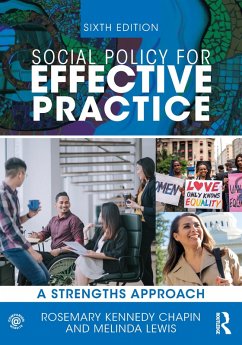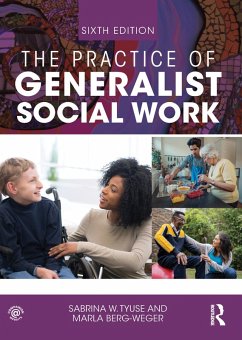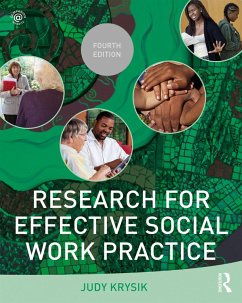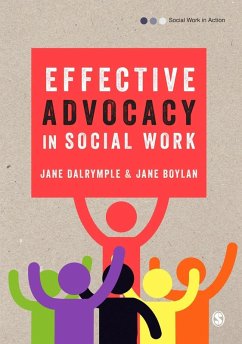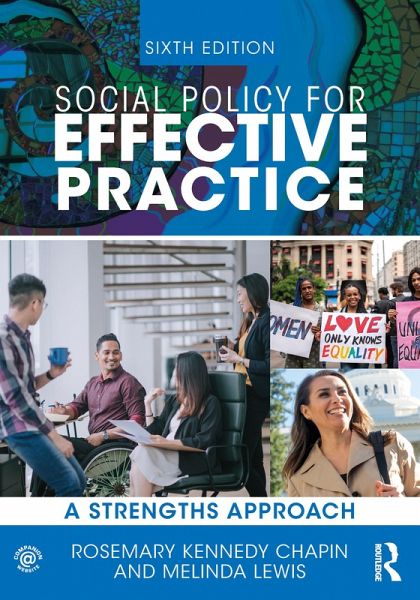
Social Policy for Effective Practice (eBook, PDF)
A Strengths Approach
Versandkostenfrei!
Sofort per Download lieferbar
84,95 €
inkl. MwSt.
Weitere Ausgaben:

PAYBACK Punkte
42 °P sammeln!
Social Policy for Effective Practice: A Strengths Approach sharpens students' awareness of social welfare policy and offers a considerable array of resources and knowledge foundations to both understand and thrive within a continually evolving policy landscape. Throughout the text, the authors tell the stories of social workers who impact policy, incorporate frameworks for policy analysis, center social work values and strengths principles, and integrate the series' interactive and downloadable cases to demonstrate policy's relevance and application to practice settings and situations in concr...
Social Policy for Effective Practice: A Strengths Approach sharpens students' awareness of social welfare policy and offers a considerable array of resources and knowledge foundations to both understand and thrive within a continually evolving policy landscape. Throughout the text, the authors tell the stories of social workers who impact policy, incorporate frameworks for policy analysis, center social work values and strengths principles, and integrate the series' interactive and downloadable cases to demonstrate policy's relevance and application to practice settings and situations in concrete ways. Students may use the text as an introduction to social policy, a tool for deeper examination of policy topics, and as a lifelong companion for their policy-relevant practice.
Now in its sixth edition, the textbook is fully updated to reflect substantial changes in policy arenas such as health care, family economic support, immigration and asylum, criminal justice, housing, reproductive rights, substance use disorder, mental health treatment, and childcare, as well as the implications of the evolving COVID-19 pandemic.
With additional support and extensions available at www.routledgesw.com, Social Policy for Effective Practice makes policy relevant, accessible, and meaningful for social work students and is a perfect complement to undergraduate and graduate courses on social policy and practice.
Now in its sixth edition, the textbook is fully updated to reflect substantial changes in policy arenas such as health care, family economic support, immigration and asylum, criminal justice, housing, reproductive rights, substance use disorder, mental health treatment, and childcare, as well as the implications of the evolving COVID-19 pandemic.
With additional support and extensions available at www.routledgesw.com, Social Policy for Effective Practice makes policy relevant, accessible, and meaningful for social work students and is a perfect complement to undergraduate and graduate courses on social policy and practice.
Dieser Download kann aus rechtlichen Gründen nur mit Rechnungsadresse in A, B, BG, CY, CZ, D, DK, EW, E, FIN, F, GR, HR, H, IRL, I, LT, L, LR, M, NL, PL, P, R, S, SLO, SK ausgeliefert werden.




